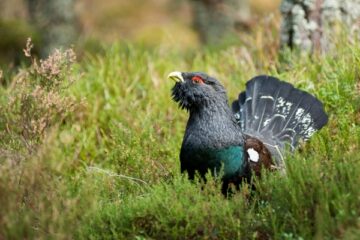An innovative working group has been created across England and Wales to reignite the venison market.
The group will focus on strengthening existing markets and opening new channels to counter competition provided by imports and reduced demand due to COVID-19.
The Wild Venison Working Group is facilitated and chaired by The Forestry Commission and has representation from BASC as well as a broad range of stakeholders from the woodland management, shooting, gamekeeping, and venison supply sectors. The group is working in collaboration with organisations in Scotland to ensure efficiency and effectiveness.
In the absence of natural predators, the UK deer population is at its highest level for the last 1000 years, there is an ongoing management requirement to ensure that they do not reach levels where they can cause negative impacts to features such as woodlands, rare plants, birds and invertebrates.
The venison produced from deer management requires a sustainable supply chain to ensure this high quality meat can reach the markets where a strong demand exists.
A combination of low levels of consumer perceptions of venison, strong competition from New Zealand and European imports, and connectivity issues within the domestic supply chain have meant that it is often overlooked in favour of other products with stronger branding and marketing.
A reduced market for British wild venison could have longer term effects on the ability of land managers to effectively protect the natural assets on which deer can have significant impacts.
The group is also collaborating with Grown in Britain to develop a robust certification scheme and associated brand to give more assurance and consistency to the chain of custody. This will lead to more opportunities to market the product both in the UK and abroad. A ‘Wild Venison Week’ is being planned and will be held early next year.
David Hooton, Forestry Commission Regional Deer Officer, said: “Reduced demand during 2019 and the devastating impact of coronavirus on the restaurant trade has left the venison market teetering at its lowest ever level.
“Venison is a high-quality product, so is well placed to appeal to a wide range of consumers. Venison markets are also key to the future control and protection of both woodlands and arable crops; deer need to be managed across the country and having a stable venison supply chain is necessary to encourage and support this.
“Our new Working Group will help improve the supply chain so venison can reach a wider marketplace, whilst also protecting our landscapes and our natural environment.”




